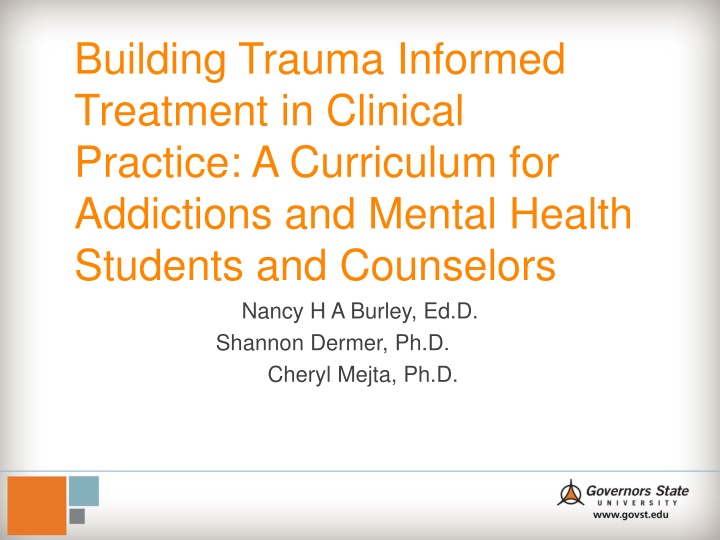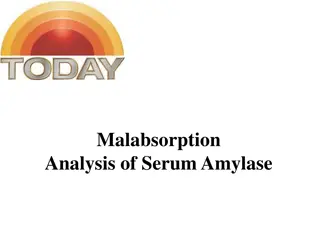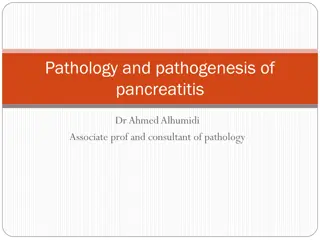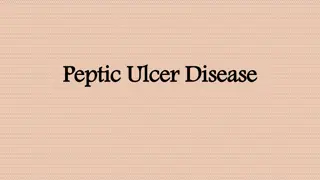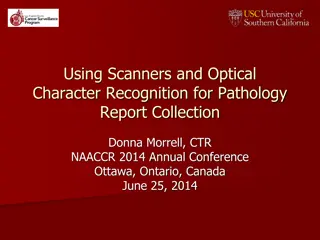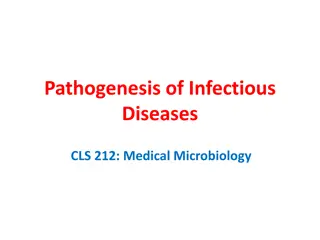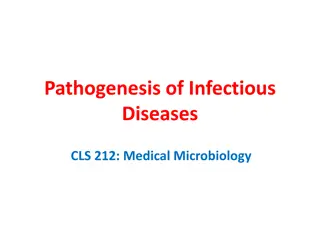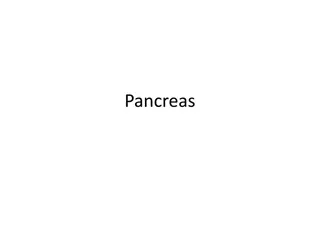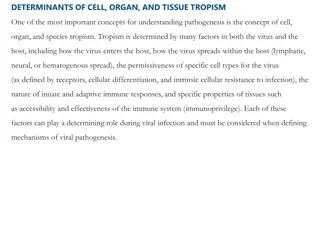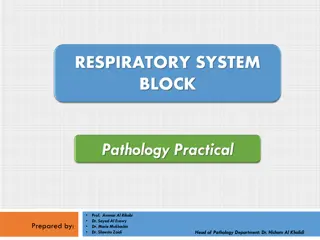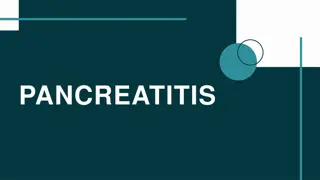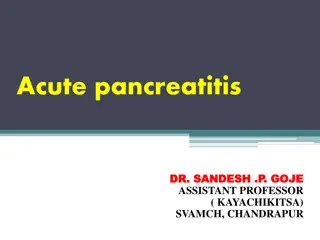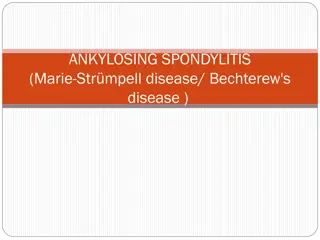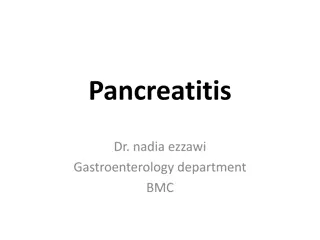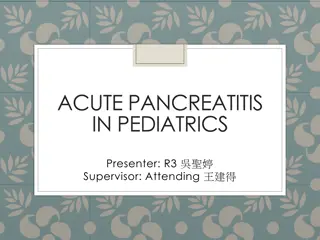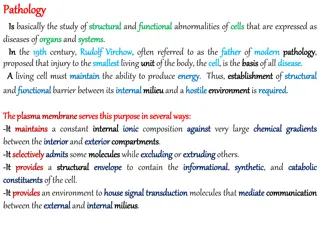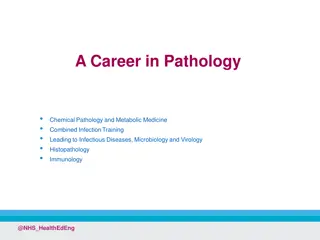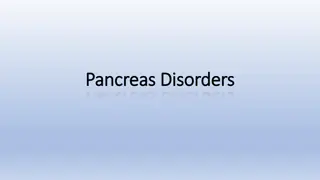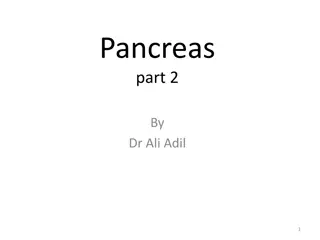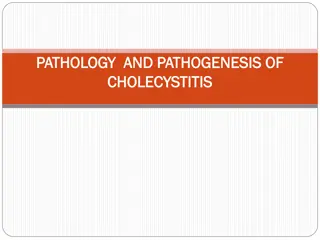Pathology and Pathogenesis of Pancreatitis
Pancreatitis is characterized by inflammation of the pancreas, with manifestations ranging from mild to life-threatening. Acute pancreatitis can be reversible, while chronic pancreatitis leads to irreversible damage. Etiologic factors include metabolic, mechanical, vascular, and infectious causes.
Download Presentation

Please find below an Image/Link to download the presentation.
The content on the website is provided AS IS for your information and personal use only. It may not be sold, licensed, or shared on other websites without obtaining consent from the author.If you encounter any issues during the download, it is possible that the publisher has removed the file from their server.
You are allowed to download the files provided on this website for personal or commercial use, subject to the condition that they are used lawfully. All files are the property of their respective owners.
The content on the website is provided AS IS for your information and personal use only. It may not be sold, licensed, or shared on other websites without obtaining consent from the author.
E N D
Presentation Transcript
Building Trauma Informed Treatment in Clinical Practice: A Curriculum for Addictions and Mental Health Students and Counselors Nancy H A Burley, Ed.D. Shannon Dermer, Ph.D. Cheryl Mejta, Ph.D.
1. Discuss the impact of adverse childhood and adult experiences on behavioral health issues. Define the meaning of TIC based on disciplinary interpretation Demonstrate the use of a specialized curriculum across disciplines Objectives 2. 3.
Outline I. Research on the impact of adverse childhood and adult experiences on health especially mental health and substance use disorders Traum-informed Treatment Approaches Online Curriculum of Trauma-Informed II. III.
Overall impact of trauma on physical and behavioral health
Trauma In the United States, 61 percent of men and 51 percent of women report exposure to at least one lifetime traumatic event, and 90 percent of clients in public behavioral health care settings have experienced trauma. If trauma goes unaddressed, people with mental illnesses and addictions will have poor physical health outcomes and ignoring trauma can hinder recovery. To ensure the best possible health outcomes, all care in all health settings must address trauma in a safe and sensitive way. https://www.integration.samhsa.gov/clinical-practice/trauma#ACE_Trauma_PTSD_Resources
Trauma "an event, series of events, or set of circumstances that is experienced by an individual as physically or emotionally harmful or life threatening and that has lasting adverse effects on the individual s functioning and mental, physical, social, emotional, or spiritual well-being. The U.S. Department of Health and Human Services SAMHSA, https://www.hhs.gov
The Importance of Recognizing Trauma Trauma is a risk factor in nearly all behavioral health and substance use disorders. Trauma can occur from: Childhood abuse or neglect Physical, emotional, or sexual abuse Accidents and natural disasters Witnessing acts of violence Grief and loss Medical interventions Cultural, intergenerational and historical trauma Medical interventions
The Effects of Trauma Bidirectional relationship- mental illness increases the risk of experiencing trauma, and trauma increases the risk of developing psychological symptoms and mental disorders. Traumatic stress increases the risk for mental illness, (Spitzer, Vogel, Barnow, Freyberger & Grabe, 2007).
Symptoms of Trauma Checklist Headaches, backaches, stomachaches, etc. Sudden sweating and/or heart palpitations Changes in sleep patterns, appetite, interest in sex Constipation or diarrhea Easily startled by noises or unexpected touch More susceptible to colds and illnesses Increased use of alcohol or drugs and/or overeating Fear, depression, anxiety Outbursts of anger or rage Emotional swings Nightmares and flashbacks re-experiencing the trauma Tendency to isolate oneself or feelings of detachment Difficulty trusting and/or feelings of betrayal Self-blame, survivor guilt, or shame Diminished interest in everyday activities (National Council for Community Behavioral Healthcare)
Trauma-Informed Care Providing care in a trauma-informed manner promotes positive health outcomes. A trauma-informed approach is defined by SAMHSA as a program, organization, or system that realizes the widespread impact of trauma and understands potential paths for recovery; recognizes the signs and symptoms of trauma in clients, families, staff, and others involved with the system; and responds by fully integrating knowledge about trauma into policies, procedures, and practices, and seeks to actively resist re-traumatization. https://www.integration.samhsa.gov/clinical- practice/trauma#ACE_Trauma_PTSD_Resources
https://www.cdc.gov/violenceprevention/childabuseandneglect/acestudy/ace-graphics.htmlhttps://www.cdc.gov/violenceprevention/childabuseandneglect/acestudy/ace-graphics.html
Example of Study on ACEs and Opioid Abuse Examine the relationship between adverse experiences and three landmarks of opioid use: age of opioid initiation, injection drug use, and lifetime overdose. Interviewed persons seeking inpatient opioid detoxification. Participants were asked about age of opioid initiation, last month injection drug use, and lifetime history of overdose, and completed the ten-item Adverse Childhood Experience (ACE) questionnaire. the ACE score was inversely associated with age of initiating opioid use (b = 0.50, 95% CI 0.70; 0.29, p < .001), and positively associated with recent injection drug use (OR = 1.11, 95% CI 1.02; 1.20, p = .014) and the likelihood of experiencing an overdose (OR = 1.10, 95% CI 1.02; 1.20, p = .015) in a graded dose response manner. Greater adverse childhood experiences are associated with three landmarks of opioid use risk. ACE screening may be useful in identifying high-risk subsets of opioid- using populations. Stein, M. D., Conti, M. T., Kenney, S., Anderson, B. J., Flori, J. N., Risi, M. M., & Bailey, G. L. (2017). Adverse childhood experience effects on opioid use initiation, injection drug use, and overdose among persons with opioid use disorder. Drug and alcohol dependence, 179, 325 329. doi:10.1016/j.drugalcdep.2017.07.007
The Impact of Trauma and substance use disorders SUD is a common among those exposed to traumatic events, especially those who experienced interpersonal violence Those with SUD are more likely than most other groups to report a history of trauma exposure and to present with symptoms of PTSD. 3 Major reasons why trauma, PTDS, and SUD may overlap 1. Trauma survivors seek out psychoactive substances as a way to self medicate posttraumatic distress 2. Those who heavily use substances are more easily victimized or otherwise prone to trauma exposure 3. Major substance use leads to more symptomatology in those exposed to trauma
Trauma Syndromes in Non- Western Cultures Cultures different from North American society may experience/express posttraumatic symptoms differently Individuals from non-Anglo-Saxon culture often fail to meet PTSD diagnostic criteria because they lack avoidant/numbing symptoms despite the presence of re-experiencing and arousal symptoms.
Online Curriculum on Trauma-informed Treatment for Mental Health and Substance Use Counselors An Interdisciplinary Project bringing Education, Addictions Studies, and Mental Health Counselors together infusing Trauma-informed treatment into the curriculum.
Governors State University The Addictions Studies graduate program, established in 1984, is accredited by the National Addictions Studies Accreditation Consortium (NASAC) and the Illinois Certification Board (ICB). The Mental Health Counseling graduate program has been accredited by the Council for Accreditation of Counseling and Related Programs (CACREP) since 1991 and was reaffirmed in 2014 for an additional 8 years
Behavioral Health Education and Training Grant This resource is supported by the Health Resources and Services Administration (HRSA) of the U.S. Department of Health and Human Services (HHS) as a part of an award totaling, $1,918,092 with 0 percent financed with non- governmental sources. The contents are those of the author(s) and do not necessarily represent the official views of, nor an endorsement, by HRSA, HHS, or the U.S. Government. For more information, please visit HRSA.gov.
Goals 1. Develop and expand the number of addictions counselors and mental health counselors serving populations across the lifespan, with a special emphasis on medically underserved areas in Illinois. Develop and/or enhance longitudinal internship sites in behavioral health that include interprofessional experiences in integrated primary and behavioral health care. Provide intensive, longitudinal, interprofessional training for students, interns, faculty and field supervisors associated with the addictions program, the counseling program, and other affiliated behavioral health and primary care programs at GSU in an effort to reinforce integrated primary and behavioral health services. Make it a priority to recruit and retain underrepresented students. Encourage students to return to underserved areas in the Chicagoland area. Evaluate the success of the program and make accessible to appropriate audiences through presentations, collaboration with community partners, and establishing an open-access portal in the university s online repository, OPUS. Increasing resources (and access to those resources) that promote Interprofessional collaboration and integrated practice. 2. 3. 4. 5. 6. 7.
Internship The HRSA, BHWET grant provides 39 students enrolled in the addictions and counseling programs with a $10,000 ($5,000 each semester) stipend to complete their 600 clock hour internships. Students receive training materials on trauma and integrated behavioral/primary care; monthly seminars/training to enhance competencies in trauma informed care. $1,500 to attend a national conference
Student Agreement Complete 2 semesters (600 clock hours) of internship Follow the rules of Addictions or Counseling program Check email regularly Provide information for the grant while enrolled and after graduation Attend at least 2 workshops offered at GSU through the BHWET grant Attend monthly seminars (hybrid--some are online) Complete online trauma and integrated care training Attend a major professional conference (awardee will receive up to $1,500 to attend) Complete all required paperwork
Online Training Course Learning Objectives for Course: Be able to define integrated primary care, underserved areas/populations, trauma, adverse childhood experiences, and resilience. Know the basic research and literature related to each of the major areas of the course. Know basic assessment and intervention related to trauma and resilience. Be able to apply knowledge to prevention and intervention in behavioral health and substance abuse.
BHWET Grant - Overview of the Course Curriculum Unit 6: Screening and Assessment of Trauma Unit 7: Prevention and Treatment of Trauma Unit 8: Integrated Models of Trauma Unit 9: Resilience Unit 10: Trauma and Organizations Learning Modules with expected outcomes Unit 1: Overview of Training Unit 2: Integrated Health Care Unit 3: Introduction to Trauma Unit 4: Adverse Childhood Experiences and Resilience Unit 5: ACEs and Substance and Abuse
BHWET Grant Books for Faculty & Students Item #Author 1 Feinstein, R, Connelly, J. Feirnstein, M. 2 King, J.L. Edition 2017 Title Integrating Behvioral Health and Primary Care Publisher Oxford Univ Press Routledge/Ta ylor Francis Routledge/Ta ylor Francis ISBN 978-0190276201 2016 Art Therapy, and Neuroscience: Theoretical and Practical Perspectives Treating the Trauma Survivor: An Essential Guide to Trauma - Informed Care 978-1138839380 Clark, C.Classen, C.C; Fourt, A., Shetty M. 2014 978-0415810982 3 Steele, W., Malchiodi, C. A. 2011 Trauma-Informed Practices with Children and Adolescents Trauma-Informed Care: How Neuroscience Influences Practice (Explorations in Mental Health) Routledge/Ta ylor Francis Routledge/Ta ylor Francis 978-0415890526 4 Evans, A., Coccoma, P. 2017 978-1138637160 5 Lanktree, C.B.; Briere, J.N. 2016 Treating Complex Trauma in Children and Their Families: An Integrative Approach Principles of Trauma Therapy: A Guide to Symptoms, Evaluation, and Treatment (DSM-5 Update) Integrated Early Childhood Behvioral Health in Primary Care: A Guide to Implementation and Evaluation 101 Trauma-Informed Interventions: Activities, Ecercises, and Assignements to Move the Client and Therapy Forward SAGE Publications SAGE Publications Springer Nature .com PESI, Inc 978-1452282640 6 Briere, J.N.; Scott, C. 2014 978-1483351247 7 Briggs, R.D. 2016 978-3319318134 8 Curran, L. 2013 978-1936128426 9 175 pg manual Addiction Professional's Guide to Screening, Brief Intervention & Referral to Treatment Manual reg vs member cost NAADAC.org NAADAC.org 10
BHWET Grant Evaluation of the curriculum
Implications for Education and Treatment Enhancement of mental health and substance use counselors competencies Improved treatment outcomes for mental health and substance use disorders Prevention of mental health and substance misuse
Governors State University Contact Information Nancy H. A. Burley, Ed.D nburley@govst.edu Shannon B. Dermer, Ph.D. sdermer@govst.edu Cheryl Mejta, Ph.D. cmejta@govst.edu
